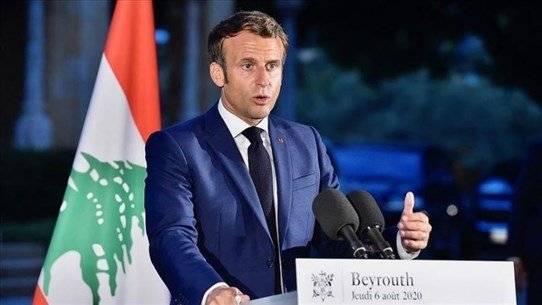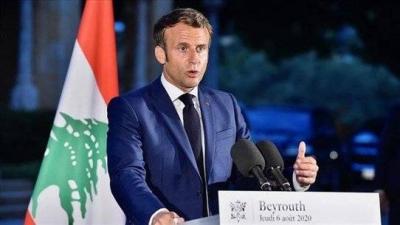The "high" from the parliamentary elections and the calculations of profit and loss for all political forces and figures have not yet ended, while forgetting the losses and collapses that the Lebanese people and the country have suffered and continue to suffer. Regardless of what the results have produced in terms of a minority or majority in the new parliament, there is no doubt that voting on some laws and projects will be on a "piecemeal" basis.
In this context, there are concerns about the inability to form a government, which could lead to prolonged caretaker status and ultimately the inability to elect a president for the republic after the term of General Michel Aoun ends, exacerbating collapse and chaos. However, on the other hand, there is a French-Vatican umbrella hovering over Lebanon, and the Lebanese file remains in the hands of French President Emmanuel Macron. It is clear that France will soon return to Lebanon, as hinted by Macron in the presence of the media during his handshake with accredited ambassadors in Paris on May 8.
According to available information from "Akhbar Al-Yawm" agency, there will be a French movement towards Lebanon soon. Despite being occupied with its own parliamentary elections, Paris is not distant from Lebanon and remains focused on preventing its collapse. France aims to secure its role in the region, with the details of the new initiative or how Macron will continue his previous initiative remaining unclear. However, the priority for the Élysée is to prevent Lebanon's collapse, whether through assistance and implementing necessary reforms or by continuing dialogue and consultation with all political forces, including "Hezbollah," similar to the current situation, without excluding any Lebanese component.
The French are still awaiting the repercussions of the results of the Lebanese parliamentary elections. For them, the fragmentation within the new parliament will complicate the governance process in Lebanon. They believe their predictions were accurate concerning the number of “civil society” deputies, despite all the support they received. This result is attributed to the current electoral law and, most importantly, their fragmentation and lack of unified electoral lists.
The Élysée team is striving, through all its channels, to inquire about, analyze, and read the results of the elections and their implications for Lebanon's interior and the possibility of forming a government as quickly as possible. The French see that the current government has fulfilled its commitments towards the international community, even if these commitments were minimal, particularly in terms of adhering to the election schedule and initiating dialogue with the International Monetary Fund. Thus, they do not object to the return of President Najib Mikati to the premiership. Paris will also work to push through as many reforms as possible during the caretaker period, as it is well aware that the process of forming a government may take a long time, along with the suffering of the Lebanese people.
Aline Farah - Akhbar Al-Yawm




